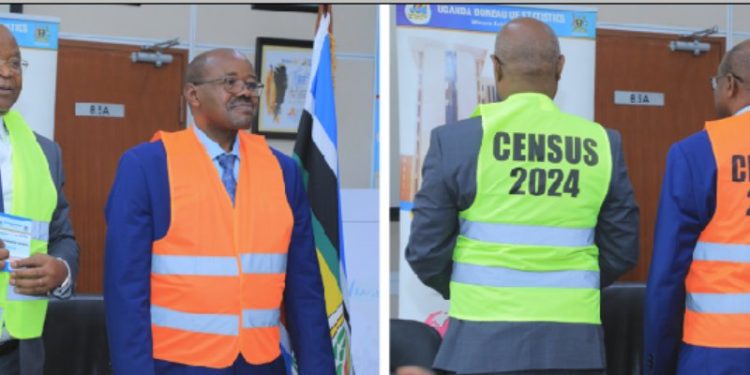The Uganda Bureau of Statistics (UBOS) has reaffirmed the accuracy and quality of its 2024 National Population and Housing Census Report, dismissing any doubts about its findings. According to UBOS, the data collection, analysis, and reporting processes adhered to the highest international standards, and the final report reflects the true demographic and socio-economic situation of Uganda.
In a public statement released by UBOS Executive Director and Census Commissioner, Dr. Chris N. Mukiza, the bureau emphasized that all registered religions recorded growth in their followers between the 2014 and 2024 censuses. While the growth in some religious groups was not as pronounced as others, UBOS clarified that variations in proportional representation were a natural outcome of changes in the national population structure.
Dr. Mukiza addressed any concerns about the accuracy of the census by highlighting the implementation of a Post Enumeration Survey (PES), an independent validation process designed to verify the completeness and correctness of the census results. “In compliance with internationally accepted practices and the approved Census Roadmap, UBOS instituted an independent team of experts to conduct the Post Enumeration Survey for 2024,” the statement reads. The findings from this survey will offer insights into the adequacy of the census and ensure that any marginal discrepancies are accounted for.
Key Findings from the 2024 Census
UBOS provided a detailed comparison of religious affiliation between 2014 and 2024. The data indicated that the Roman Catholic population, while still the largest group, saw its proportion drop from 38.7% to 36.2%, despite an increase in absolute numbers from 13.4 million to 16.6 million. The Anglican/Church of Uganda similarly experienced a reduction in its share, declining from 31.6% to 29.0%.
On the other hand, the Pentecostal/Evangelical community showed a significant rise in both absolute and proportional terms, growing from 3.7 million (10.9%) to 6.5 million (14.3%). Islam, too, registered steady growth, maintaining a similar share of the total population at 13.2%, up from 13.5%.
UBOS also noted a marked increase in the number of individuals identifying with no specific religion, which rose from 78,254 to 85,559, a shift that reflects broader global trends toward secularism and religious fluidity.
Ensuring Data Integrity
UBOS underscored its commitment to maintaining the integrity of the census process. The Post Enumeration Survey, scheduled for completion later this year, will further validate the census results, providing reassurance to stakeholders and the general public. “The Final Report containing comprehensive statistical data will be published in December 2024, following the survey,” Dr. Mukiza confirmed.
This approach is aligned with UBOS’s long-standing reputation for data transparency and reliability. By instituting the PES, UBOS ensures that the 2024 Census not only meets national needs but also holds up to international scrutiny.
With the census now complete, UBOS will continue its efforts to disseminate the findings and guide national policy based on accurate, up-to-date population data. The bureau remains open to any further inquiries and is committed to engaging with stakeholders to address concerns, should they arise.





